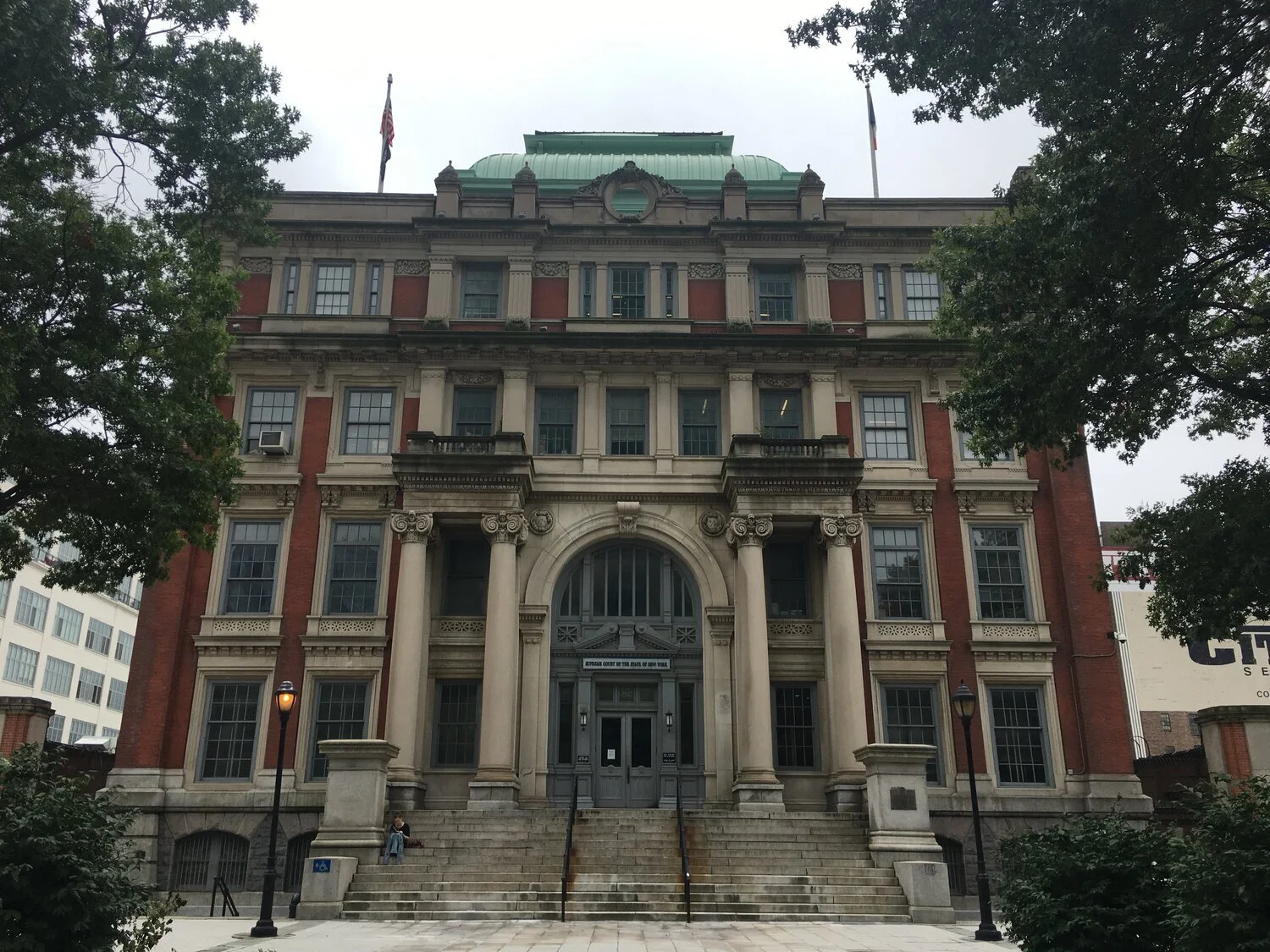Ex-Queens judge harassed staff and attorneys for years, state commission finds
/Justice Diccia Pineda-Kirwan worked at the Long Island City Supreme Courthouse until she was transferred to Nassau County in 2019. Eagle file photo by Clarissa Sosin
By David Brand
A former Queens Supreme Court justice harassed and berated her staff, attorneys and other court personnel for more than seven years, according to a determination published Thursday by the state’s Commission on Judicial Conduct.
The 11-member commission recommended the sanction of “censure” — a public rebuke — for Justice Diccia Pineda-Kirwan, who was transferred to Nassau County Supreme Court in 2019.
The determination came in response to complaints alleging that Justice Diccia Pineda-Kirwan acted in a “rude, impatient, undignified and discourteous manner when she repeatedly and without basis shouted, yelled or otherwise raised her voice at staff members of the Queens County Supreme Court and at attorneys appearing before her.”
Pineda-Kirwan engaged in the behavior even after the Commission sent her a letter in 2006 that “cautioned her to be patient, dignified and courteous to those with whom she dealt in an official capacity,” according to the recommendation.
In one 2011 example cited in the commission’s report, Pineda-Kirwan yelled at former Queens Supreme Court Principal Law Clerk Maria Bradley who was relaying a message from then-Administrative Judge Jeremy Weinstein. Pineda-Kirwan had continued to dismiss uncontested divorce matters for minor technical defects even after Weinstein advised judges to have the defects remedied without a dismissal.
Pineda-Kirwan, who became a judge in 2003, yelled at Bradley and “vehemently stated that she would not do a clerk’s job” and that “no one, including Judge Weinstein, could tell her how to decide a case,” the report states.
Former Queens Supreme Court Justice Diccia Pineda-Kirwan in 2005. Photo via Queens DA’s Office
The commission found that Pineda Kirwan had also screamed at Long Island City Courthouse facility supervisor Mark Finkelstein, asserting her seniority and charging him with denying her furniture she wanted. She then sent chambers staff to take the furniture from another courtroom.
“I’m a senior judge. I should have what I want,” she said after being confronted for ordering staff to take the furniture, according to the report.
On multiple occasions, she mistreated her staff, other court personnel and attorneys appearing before her, the commission found.
“In addition to her inappropriate conduct toward court personnel, respondent also admitted that on three occasions she yelled at counsel who were appearing before her,” the 11-member panel wrote in its decision. “In one instance, respondent told the parties to enter into a stipulation and when one attorney indicated that there was nothing to which he could stipulate, she yelled at him, ‘Get out of my courtroom. Get out. Get out.’”
“Respondent acknowledged that she continued to yell at the attorney while he gathered his things and left the courtroom,” the commission continued. “Such conduct was unbecoming a judge. Respondent’s pattern of intemperate and abusive behavior was improper and severely undermined confidence in the judiciary.”
Pineda-Kirwan signed off on the recommendation, acknowledging her mistakes.
A call to Pineda-Kirwan’s courtroom Thursday was answered by a law clerk, who directed questions to the Nassau County Supreme Court communications office,
“The only thing I can tell you is this was a determination by the state commission on judicial conduct and we don’t comment on those,” said Nassau County Supreme Court spokesperson Dan Bagnuola.
Several Queens attorneys say they were not surprised to learn about the complaint or the commission’s determination.
“That accusation was a fair representation of what attorneys experienced in her courtroom on a daily basis,” said one attorney who appeared before her. “This was a common practice in her courtroom down in Civil Court in Jamaica and when she was moved up to Supreme Court in Long Island City.”





